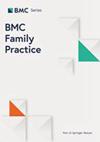The effectiveness of chronic disease management planning on self-management among patients with diabetes at general practice settings in Australia: a scoping review
IF 3.2
3区 医学
Q1 MEDICINE, GENERAL & INTERNAL
引用次数: 0
Abstract
Medicare provides significant funding to improve, encourage and coordinate better practices in primary care. Medicare-rebated Chronic Disease Management (CDM) plans are a structured approach to managing chronic diseases in Australia. These chronic disease care plans are intended to be a vehicle to deliver guideline-based / evidence-based care.. However, recommended care is not always provided, and health outcomes are often not achieved. This scoping review aimed to identify the specific components of CDM plans that are most effective in promoting self-management, as well as the factors that may hinder or facilitate the implementation of these plans in general practice settings in Australia. A comprehensive search was conducted using multiple electronic databases, considering inclusion and exclusion criteria. Two reviewers independently screened the titles and abstracts of the identified studies via Covidence, and the full texts of eligible studies were reviewed for inclusion. A data extraction template was developed based on the Cochrane Effective Practice and Organization of Care Group (EPOC) to classify the intervention methods and study outcomes. A narrative synthesis approach was used to summarize the findings of the included studies. The quality of the included studies was assessed using the JBI Critical Appraisal Checklist. Seventeen articles were included in the review for analysis and highlighted the effectiveness of CDM plans on improving patient self-management. The findings demonstrated that the implementation of CDM plans can have a positive impact on patient self-management. However, the current approach is geared towards providing care to patients, but there are limited opportunities for patients to engage in their care actively. Furthermore, the focus is often on achieving the outcomes outlined in the CDM plans, which may not necessarily align with the patient’s needs and preferences. The findings highlighted the significance of mutual obligations and responsibilities of team care for patients and healthcare professionals, interprofessional collaborative practice in primary care settings, and regular CDM plan reviews. Self-management support remains more aligned with a patient-centred collaboration approach and shared decision-making and is yet to be common practice. Identifying influential factors at different levels of patients, healthcare professionals, and services affecting patients’ self-management via CDM plans can be crucial to developing the plans.慢性病管理规划对澳大利亚全科诊所糖尿病患者自我管理的有效性:范围界定综述
医疗保险计划(Medicare)提供大量资金,用于改善、鼓励和协调更好的初级保健实践。医疗保险报销的慢性病管理(CDM)计划是澳大利亚管理慢性病的一种结构化方法。这些慢性病护理计划旨在成为提供基于指南/循证护理的工具。然而,推荐的护理并不总是能够提供,健康结果也往往无法实现。本范围界定综述旨在确定慢性病护理计划中对促进自我管理最为有效的具体内容,以及可能阻碍或促进这些计划在澳大利亚全科医疗机构中实施的因素。考虑到纳入和排除标准,我们使用多个电子数据库进行了全面检索。两名审稿人通过 Covidence 独立筛选了已确定研究的标题和摘要,并对符合条件的研究全文进行了审阅,以确定是否纳入研究。根据科克伦有效实践和护理组织小组(EPOC)的要求,制定了数据提取模板,对干预方法和研究结果进行分类。采用叙事综合法对纳入研究的结果进行总结。采用 JBI 批判性评估清单对纳入研究的质量进行了评估。共有 17 篇文章被纳入综述进行分析,这些文章强调了 CDM 计划在改善患者自我管理方面的有效性。研究结果表明,CDM 计划的实施可对患者的自我管理产生积极影响。然而,目前的方法是向患者提供护理,但患者主动参与护理的机会有限。此外,重点往往是实现 CDM 计划中概述的结果,而这不一定符合患者的需求和偏好。研究结果强调了患者和医护人员在团队护理中的相互义务和责任、初级医疗机构中的跨专业合作实践以及定期回顾 CDM 计划的重要性。自我管理支持仍然更符合以患者为中心的合作方法和共同决策,但尚未成为普遍做法。通过 CDM 计划确定影响患者自我管理的患者、医护人员和服务等不同层面的影响因素,对于制定计划至关重要。
本文章由计算机程序翻译,如有差异,请以英文原文为准。
求助全文
约1分钟内获得全文
求助全文
来源期刊

BMC Family Practice
医学-医学:内科
CiteScore
3.20
自引率
0.00%
发文量
0
审稿时长
4-8 weeks
期刊介绍:
BMC Family Practice is an open access, peer-reviewed journal that considers articles on all aspects of primary health care research. The journal has a special focus on clinical decision making and management, continuing professional education, service utilization, needs and demand, and the organization and delivery of primary care and care in the community.
 求助内容:
求助内容: 应助结果提醒方式:
应助结果提醒方式:


